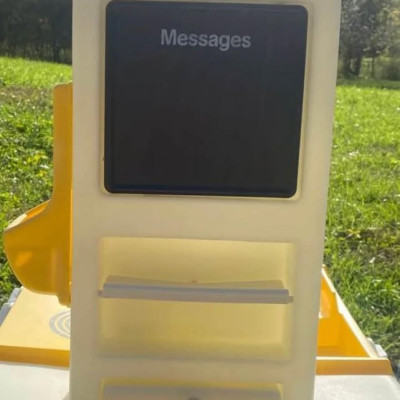16 Powerful Methods to Achieve Self-Forgiveness for Past Mistakes
Self-forgiveness is a transformative journey that allows us to release guilt, heal emotional wounds, and cultivate inner peace. It's a crucial step towards self-acceptance and personal growth.
If you're struggling to forgive yourself for past mistakes, here are 16 powerful methods to guide you on your path to healing:
1. Acknowledge Your Feelings
Start by acknowledging and accepting the emotions you're experiencing—whether it's guilt, shame, or regret. Allow yourself to feel these emotions without judgment.
2. Reflect on Lessons Learned
Reflect on the lessons you've learned from your mistakes. What insights have they brought into your life? Use these lessons as stepping stones for personal growth.
3. Practice Self-Compassion
Be kind and compassionate towards yourself. Treat yourself with the same empathy and understanding you would offer a friend facing a similar situation.
4. Write a Letter to Yourself
Pour your heart out in a letter addressed to yourself. Apologize for any harm caused, express your feelings, and affirm your commitment to learning and growth.
5. Seek Perspective from Others
Talk to a trusted friend, mentor, or therapist about your feelings. Their perspective can provide valuable insights and support as you navigate your journey towards self-forgiveness.
6. Practice Mindfulness and Meditation
Engage in mindfulness practices and meditation to cultivate present-moment awareness and reduce self-critical thoughts. Allow yourself to observe your thoughts and feelings without attachment.
7. Release Perfectionism
Let go of unrealistic expectations of yourself. Understand that making mistakes is a natural part of being human and does not diminish your worth or potential.
8. Engage in Positive Affirmations
Use positive affirmations to reframe negative self-talk and build self-esteem. Repeat affirmations such as "I deserve forgiveness" or "I am worthy of love and acceptance."
9. Focus on Self-Care
Prioritize self-care activities that nurture your physical, emotional, and mental well-being. This can include exercise, healthy eating, adequate rest, and hobbies that bring you joy.
10. Challenge Negative Thoughts
Challenge self-critical thoughts with compassion and logic. Replace negative beliefs with more realistic and supportive perspectives.
11. Practice Forgiveness Rituals
Create personal rituals that symbolize forgiveness and closure. This could involve writing your mistakes on paper, then safely burning or burying them as a symbolic gesture of letting go.
12. Set Boundaries with Yourself
Establish boundaries that protect your emotional health and prevent dwelling excessively on past mistakes. Practice redirecting your thoughts towards constructive actions and goals.
13. Learn to Let Go
Practice the art of letting go by releasing the grip of past regrets. Embrace the present moment and focus on creating a positive future for yourself.
14. Engage in Creative Expression
Express your emotions through creative outlets such as writing, art, music, or dance. Creativity can provide a therapeutic way to process feelings and gain new perspectives.
15. Cultivate Gratitude
Focus on gratitude for the lessons learned from your mistakes and the opportunities for growth they have provided. Gratitude shifts your perspective towards positivity and acceptance.
16. Give Yourself Time
Understand that self-forgiveness is a journey that takes time and patience. Allow yourself the space to heal at your own pace and celebrate each step forward, no matter how small.
Conclusion
Self-forgiveness is a profound act of self-love and healing. By practicing these 16 powerful methods, you can gradually release self-blame, embrace compassion, and reclaim your sense of worthiness.
Remember, forgiveness is not about condoning past actions but about freeing yourself from their emotional burden. Embrace the journey towards self-forgiveness with courage and openness, knowing that you deserve peace and self-acceptance.
#body #mind #soul






